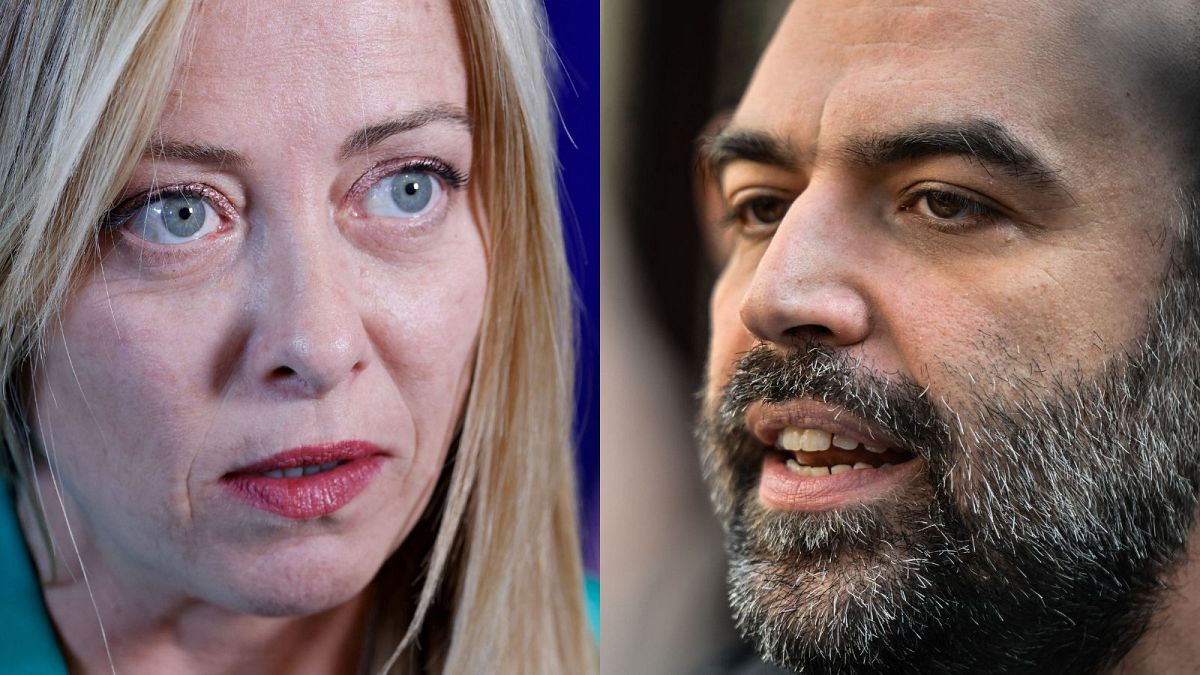Italy's Prime Minister sued the writer over remarks he made about her toxic rhetoric around illegal immigration during a TV interview in 2020.
Italian journalist and author Roberto Saviano, who has been living under armed guard since writing a scalding book about Naples’ mafia, was ordered by a court in Rome to pay a fine of €1000 for insulting the country’s prime minister, Giorgia Meloni.
Saviano, who reached worldwide fame with his first book, Gomorrah, and who has established himself as one of the most prominent left-wing intellectuals in Italy, was taken to court by Meloni after calling her “a bastard” over her controversial immigration policies.
He made the comment during a television interview back in December 2020, when Saviano was asked to comment on the death of a six-month-old baby from Guinea, Yusuf, who drowned in one of the many shipwrecks which happen every year near Italian shores.
At the time, Meloni and Matteo Salvini, the leader of the populist, far-right League party, were not yet in government, but were pushing harsh rhetoric against international NGOs helping rescue migrants in the Mediterranean Sea.
“You’d have likely thought of all the rubbish said about NGOs: ‘sea taxis’, ‘cruises’ [for migrants]. But all I can say is: bastards. Meloni, Salvini: bastards, how could you? How was it possible to describe all of that sorrow this way? It’s fair to have a political opinion, but not on the [immigrant] emergency,” Saviano said.
Meloni responded at the time by calling Saviano a “serial hater.” She then decided to sue him for defamation, a crime that is punished harshly in Italy.
Saviano faced between six months and three years in prison if found guilty of defamation against Meloni by a criminal court in Rome on Thursday, but was then ordered to pay a fine of €1000. Meloni, who never showed up in court, was asking for a €75,000 fine.
Before heading to the trial on Thursday morning, Saviano wrote on X, formerly known as Twitter, that he was being trialled for having “criticised the populist lies against migrants and NGOs told in recent years”.
Salvini had already sued Saviano in 2018 after the writer called him “il ministro della mala vita” or “the minister of the underground criminal world”.
Before the trial, the European Centre for Press and Media Freedom (ECPMF) was among the many organisations – including Pen International and the IFJ – to express their support to Saviano during the trial, writing on X on Thursday: “ECPMF stands in solidarity with @robertosaviano as he awaits verdict in a SLAPP case brought by @GiorgiaMeloni, who sues him for defamation over comments on her migration rhetoric.”
It added: “Nobody should be subjected to legal action for their views on matters of public interest.”
Support for the writer poured in after Thursday's verdict, with the writers' association Pen saying they feared that his trial would have a "chilling effect" on Italian media.
"The 🇮🇹 Parliament must adopt legislation to prevent intimidation of journalists by gag lawsuits," posted Reporters Sans Frontières.
During an Instagram live following the verdict, Saviano spoke about "the need to resist this government" and fight its "lies" which go "unpunished and are defended by [legal] immunity."
"They brought me to trial and condemned me to intimidate me, but I'm not their only target; [their target] is everyone who decides to take a radical stance against them," he said.
Meloni has not commented on the verdict.
